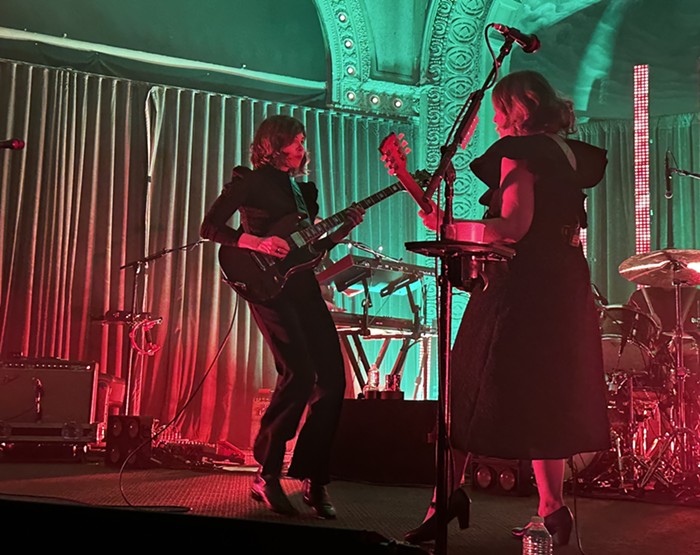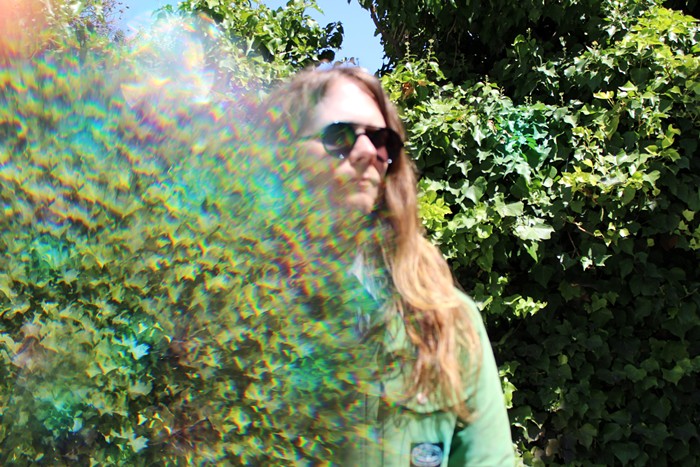THE CAREER OF Vancouver, BC's Destroyer—the moniker for the New Pornographers' Daniel Bejar—is best characterized by shape-shifting reinvention. With every album, Bejar manages to repackage the Destroyer sound, while retaining his inimitable earmarks as a songwriter: irrepressible melody, deeply associative wordplay, and a flair for drama and excess.
The first sign of greatness was Streethawk: A Seduction (2001), by far Destroyer's most diverse album. Ranging from the infectious glam-tinged pop of "The Bad Arts" to more conventional indierock on "Farrar, Straus, and Giroux," Streethawk unapologetically wore its influences on its sleeve. Since then, Destroyer has shed such discernible touchstones for an approach to songwriting that Bejar describes as "hermetic." And while the sprawling '70s rock homage of This Night (2002) and the schmaltzy MIDI instrumentation of Your Blues (2004) weren't always entirely satisfying, they did showcase a singular voice willing to take big risks to advance the songwriting. Earlier this year, Destroyer released Destroyer's Rubies, its sixth album and strongest collection of songs since Streethawk. Predictably, it's a record unlike any of its predecessors.
"I think this record, more than any other, came out of a more natural progression," says Bejar.
On Rubies, his lyrics are their most literate, pairing poetic imagery with more tongue-in-cheek lines like, "those who love Zeppelin will soon betray Floyd/I cast off these couplets in honor of the void." And musically, Rubies is Destroyer at its loosest: songs ebb and flow, rambling on in epic workouts. According to Bejar, he and the band had a vague "mid-'70s Van Morrison thought" floating through their heads, but ultimately, the album's sound was less a product of calculated influences than how the band coalesced in the studio.
"I had written the players in by telling them it was going to be a jazz record and that the whole thing was going to be recorded completely live. Obviously, neither of those things became very dominant as we recorded."
Instead, Rubies is rich with overdubs—from tinkling piano accents to booming saxophones. And while the result conjures Hunky Dory-era Bowie more than anything resembling jazz, there is something very expressive in Bejar's phrasing, making up for the limitations of his reedy timbre.
"I was thinking of soul singing—and I know there are so many reasons why I shouldn't say that. But I was trying to sing in a more loosened manner, to feel a little freer to ditch melody when I felt like it. There's a lot of melody floating around, so it kind of freed up my phrasing."
Bejar's writing charges the music with a kind of timeless quality, inspiring comparisons to the surreal, but hypnotic babble of vintage Dylan. His lyrics are opaque, but filled with the kind of literary tricks that make English majors swoon. They're stuffed with internal rhymes, garbled citations, and references to practically everything—including older Destroyer lyrics. When I ask Bejar about them, he denies that there is too much gravity in his approach to writing lyrics, at least initially.
"It's totally instinctual. I'm not trying to put forth a model as a new way of writing in song," he tells me before taking a considered pause. "Excepting, of course, the very small part of me that is trying to do that."


















